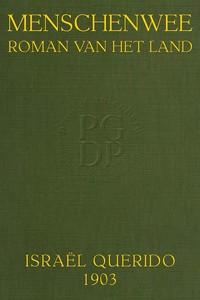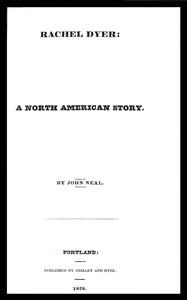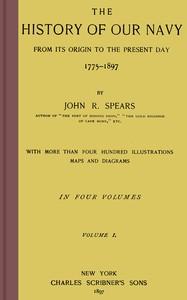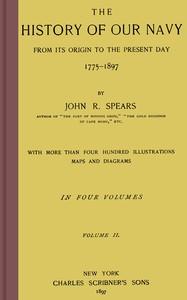Read this ebook for free! No credit card needed, absolutely nothing to pay.
Words: 37297 in 9 pages
This is an ebook sharing website. You can read the uploaded ebooks for free here. No credit cards needed, nothing to pay. If you want to own a digital copy of the ebook, or want to read offline with your favorite ebook-reader, then you can choose to buy and download the ebook.
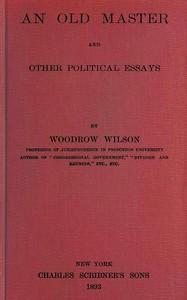

: An old master and other political essays by Wilson Woodrow - United States Politics and government; Political science; Smith Adam 1723-1790
AN OLD MASTER
There was too often a paralysis of dulness in the old lecture, or, rather, in the old lecturer; and written lectures, like history and fashion in dress, have an inveterate tendency to repeat themselves; but, on the contrary, there was often a wealth of power also in the studied discourse of strong men. Masters bent upon instructing and inspiring--and there were many such--had to penetrate that central secret of literature and spoken utterance--the secret of style. Their only instrument of conquest was the sword of penetrating speech. Some of the subtlest and most lasting effects of genuine oratory have gone forth from secluded lecture desks into the hearts of quiet groups of students; and it would seem to be good policy to endure much indifferent lecturing--watchful trustees might reduce it to a minimum--for the sake of leaving places open for the men who have in them the inestimable force of chastened eloquence. For one man who can impart an undying impulse there are several score, presupposing the requisite training, who can impart a method; and here is the well understood ground for the cumulating disfavor of college lecturing and the rapid substitution of 'laboratory drill.' But will not higher education be cut off from communion with the highest of all forces, the force of personal inspiration in the field of great themes of thought, if you interdict the literary method in the class-room?
I am not inclined to consume very many words in insisting on this point, for I believe that educators are now dealing more frankly with themselves than ever before, and that so obvious a point will by no means escape full recognition before reformed methods of college and university instruction take their final shape. But it is very well to be thinking explicitly about the matter meanwhile, in order that the lecture may be got ready to come fully militant into the final battle for territory. The best way to compass this end would seem to be, to study the art of the old masters of learned discourse. With Lanfranc one could get the infinite charm of the old monastic school life; with Abelard, the undying excitement of philosophical and religious controversy; with Colet, the fire of reforming zeal; with Blackstone, the satisfactions of clarified learning. But Bee and Paris and Oxford have by no means monopolized the masters of this art, and I should prefer, for the nonce at least, to choose an exemplar from Scotland, and speak of Adam Smith. It will, no doubt, be possible to speak of him without going over again the well worn ground of the topics usually associated with his great fame.
There is much, besides the contents of his published works, to draw to Adam Smith the attention of those who are attracted by individual power. Scotchmen have long been reputed strong in philosophic doctrine, and he was a Scot of the Scots. But, though Scotland is now renowned for her philosophy, that renown is not of immemorial origin; it was not till the last century was well advanced that she began to add great speculative thinkers to her great preachers. Adam Smith, consequently, stands nearly at the opening of the greatest of the intellectual eras of Scotland. Yet by none of the great Scotch names which men have learned since his day has his name been eclipsed. The charm about the man consists, for those who do not regard him with the special interest of the political economist, in his literary method, which exhibits his personality so attractively and makes his works so thoroughly his own, rather than in any facts about his eminency among Scotchmen. You bring away from your reading of Adam Smith a distinct and attractive impression of the man himself, such as you can get from the writings of no other author in the same field, and such as makes you wish to know still more of him. What was he like? What was his daily life?
Unhappily, we know very little that is detailed of Adam Smith as a man; and it may be deplored, without injustice to a respected name, that we owe that little to Dugald Stewart, who was too self-conscious and too stately to serve another efficiently as biographer. There was no suitable place amid the formal spaces of his palatial style for small illuminating details. Even from Dugald Stewart, however, we get a picture of Adam Smith which must please every one who loves simplicity and genuineness. He was not, perhaps, a companionable man; he was much too absent-minded to be companionable; but he was, in the highest sense, interesting. His absent-mindedness was of that sort which indicates fulness of mind, which marks a mind content, much of the time, to live within itself, indulging in those delights of quiet contemplation which the riches of a full store of thought can always command. Often he would open to his companions his mind's fullest confidences, and, with a rare versatility, lavish a wealth of information and illustration upon topics the most varied and diverse, always to the wondering delight of those who heard him.
Adam Smith sought to cover the field he had chosen with a fourfold course of lectures. First, he unfolded the principles of natural theology; second, he illustrated the principles of ethics, in a series of lectures which were afterwards embodied in his published work on the "Theory of Moral Sentiments;" third, he discoursed on that branch of morality which relates to the administration of justice; and, last, coming out upon the field with which his name is now identified, he examined those political regulations which are founded, not upon principles of justice, but upon considerations of expediency, and which are calculated to increase the riches, the power, and the prosperity of the State. His notes of his lectures he himself destroyed when he felt death approaching, and we are left to conjecture what the main features of his treatment were, from the recorded recollections of his pupils and from those published works which remain as fragments of the great plan. These fragments consist of the "Theory of Moral Sentiments," the "Wealth of Nations," and "Considerations Concerning the First Formation of Languages;" besides which there are, to quote another's enumeration, "a very curious history of astronomy, left imperfect, and another fragment on the history of ancient physics, which is a kind of sequel to that part of the history of astronomy which relates to ancient astronomy; then a similar essay on the ancient logic and metaphysics; then another on the nature and development of the fine, or, as he calls them, the imitative, arts, painting, poetry, and music, in which was meant to have been included a history of the theatre--all forming part, his executors tell us, 'of a plan he had once formed for giving a connected history of the liberal and elegant arts;'" part, that is , of the "immense design of showing the origin and development of cultivation and law, or ... of saying how, from being a savage, man rose to be a Scotchman."
The wideness of view and amazing variety of illustration that characterized his treatment, in developing the several parts of this vast plan, can easily be inferred from an examination of the "Wealth of Nations."
"The 'Wealth of Nations,'" declares Mr. Buckle, from whom, for obvious reasons, I prefer to quote, "displays a breadth of treatment which those who cannot sympathize with, are very likely to ridicule. The phenomena, not only of wealth, but also of society in general, classified and arranged under their various forms; the origin of the division of labor, and the consequences which that division has produced; the circumstances which gave rise to the invention of money, and to the subsequent changes in its value; the history of those changes traced in different ages, and the history of the relations which the precious metals bear to each other; an examination of the connection between wages and profits, and of the laws which govern the rise and fall of both; another examination of the way in which these are concerned, on the one hand with the rent of land, and, on the other hand, with the price of commodities; an inquiry into the reason why profits vary in different trades, and at different times; a succinct but comprehensive view of the progress of towns in Europe since the fall of the Roman Empire; the fluctuations, during several centuries, in the prices of the food of the people, and a statement of how it is, that, in different stages of society, the relative cost of meat and of land varies; the history of corporation laws and of municipal enactments, and their bearing on the four great classes of apprentices, manufacturers, merchants, and landlords; an account of the immense power and riches formerly enjoyed by the clergy, and of the manner in which, as society advances, they gradually lose their exclusive privileges; the nature of religious dissent, and the reason why the clergy of the Established Church can never contend with it on terms of equality, and, therefore, call on the State to help them, and wish to persecute when they cannot persuade; why some sects profess more ascetic principles, and others more luxurious ones; how it was, that, during the feudal times, the nobles acquired their power, and how that power has, ever since, been gradually diminishing; how the rights of territorial jurisdiction originated, and how they died away; how the sovereigns of Europe obtained their revenue, what the sources of it are, and what classes are most heavily taxed in order to supply it; the cause of certain virtues, such as hospitality, flourishing in barbarous ages, and decaying in civilized ones; the influence of inventions and discoveries in altering the distribution of power among the various classes of society; a bold and masterly sketch of the peculiar sort of advantages which Europe derived from the discovery of America and of the passage round the Cape; the origin of universities, their degeneracy from the original plan, the corruption which has gradually crept over them, and the reason why they are so unwilling to adopt improvements, and to keep pace with the wants of the age; a comparison between public and private education, and an estimate of their relative advantages; these, and a vast number of other subjects, respecting the structure and development of society, such as the feudal system, slavery, emancipation of serfs, origin of standing armies and of mercenary troops, effects produced by tithes, laws of primogeniture, sumptuary laws, international treaties concerning trade, rise of European banks, national debts, influence of dramatic representations over opinions, colonies, poor-laws--all topics of a miscellaneous character, and many of them diverging from each other--all are fused into one great system, and irradiated by the splendor of one great genius. Into that dense and disorderly mass, did Adam Smith introduce symmetry, method, and law."
In fact, it is a book of digressions--digressions characterized by more order and method, but by little more compunction, than the wondrous digressions of Tristram Shandy.
It is interesting to note that even this vast miscellany of thought, the "Wealth of Nations," systematized though it be, was not meant to stand alone as the exposition of a complete system; it was only a supplement to the "Theory of Moral Sentiments;" and the two together constituted only chapters in that vast book of thought which their author would have written. Adam Smith would have grouped all things that concern either the individual or the social life of man under the several greater principles of motive and action observable in human conduct. His method throughout is, therefore, necessarily abstract and deductive. In the "Wealth of Nations," he ignores the operation of love, of benevolence, of sympathy, and of charity in filling life with kindly influences, and concentrates his attention exclusively upon the operation of self-interest and expediency; because he had reckoned with the altruistic motives in the "Theory of Moral Sentiments," and he would not confuse his view of the economic life of man by again forcing these in where selfishness was unquestionably the predominant force. "The philosopher," he held, "is the man of speculation, whose trade is not to do anything, but to observe everything;" and certainly he satisfied his own definition. He does observe everything; and he stores his volumes full with the sagest practical maxims, fit to have fallen from the lips of the shrewdest of those Glasgow merchants in whose society he learned so much that might test the uses of his theories. But it is noticeable that none of the carefully noted facts of experience which play so prominent a part on the stage of his argument speaks of any other principle than the simple and single one which is the pivot of that part of his philosophy with which he is at the moment dealing. In the "Wealth of Nations" every apparent induction leads to self-interest, and to self-interest alone. In Mr. Buckle's phrase, his facts are subsequent to his argument; they are not used for demonstration, but for illustration. His historical cases, his fine generalizations, everywhere broadening and strengthening his matter, are only instances of the operation of the single abstract principle meant to be set forth.
When he was considering that topic in his course which has not come down to us in any of the remaining fragments of his lectures--the principles of justice, namely--although still always mindful of its relative position in the general scheme of his abstract philosophy of society, his subject led him, we are told, to speak very much in the modern historical spirit. He followed upon this subject, says the pupil already quoted, "the plan which seems to have been suggested by Montesquieu; endeavoring to trace the gradual progress of jurisprudence, both public and private, from the rudest to the most refined ages, and to point out the effects of those arts which contribute to subsistence, and to the accumulation of property, in producing corresponding improvements or alterations in law and government." In following Montesquieu, he was, of course, following one of the forerunners of that great school of philosophical students of history which has done so much in our own time to clear away the fogs that surround the earliest ages of mankind, and to establish something like the rudiments of a true philosophy of history. And this same spirit was hardly less discernible in those later lectures on the "political institutions relating to commerce, to finances, and to the ecclesiastical and military establishments," which formed the basis of the "Wealth of Nations." Everywhere throughout his writings there is a pervasive sense of the realities of fact and circumstance; a luminous, bracing, work-a-day atmosphere. But the conclusions are, first of all, philosophical; only secondarily practical.
It has been necessary to go over this somewhat familiar ground with reference to the philosophical method of Adam Smith, in order to come at the proper point of view from which to consider his place among the old masters of academic lecturing. It has revealed the extent of his outlook. There yet remains something to be said of his literary method, so that we may discern the qualities of that style which, after proving so effectual in imparting power to his spoken discourses, has since, transferred to the printed page, preserved his fame so far beyond the lifetime of those who heard him.
Free books android app tbrJar TBR JAR Read Free books online gutenberg
More posts by @FreeBooks
